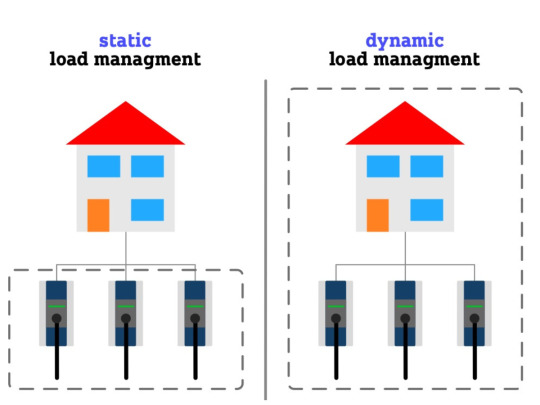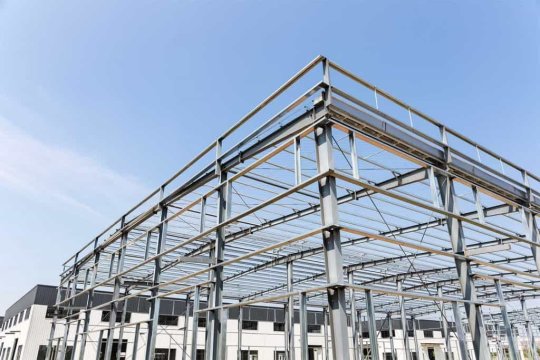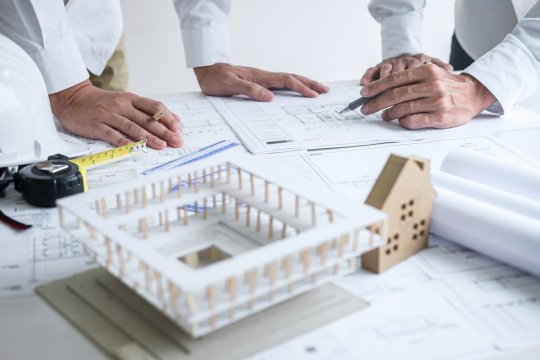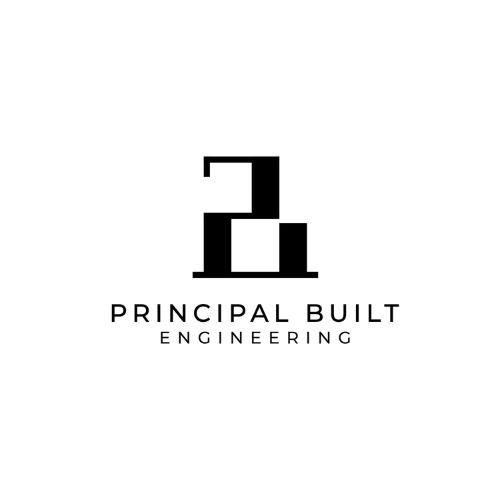At Principal Built Engineering, we offer comprehensive engineering and design consultation services tailored to meet the needs of your residential, commercial, and industrial projects. Our team of experts provides valuable guidance throughout the design and construction process, ensuring your project is completed to the highest standards. Contact us today to work with the leading engineering consultants in Melbourne!
Don't wanna be here? Send us removal request.
Text
Exploring Static Load vs Dynamic Load: Key Concepts for Structural Stability
Static vs. dynamic load - both are key aspects for maintaining the safety and stability of buildings. Both these loads play an important role in the design and construction of a structure. Here is everything you should know about static and dynamic load, and their impact on infrastructures.
Learn More:

1 note
·
View note
Text
Engineering Consultant: What They Do, Their Services, and Why You Might Need One
An engineering consultant is a professional who provides expert advice, solutions, and technical support in various fields of engineering, including civil, mechanical, electrical, and environmental engineering.

3 notes
·
View notes
Text
Expert Residential Structural Engineering in Melbourne | Principal Built Engineering
Discover reliable residential structural engineering solutions with Principal Built Engineering. From custom designs to compliance, we ensure safety and quality for every project. Contact us today to bring your vision to life!

5 notes
·
View notes
Text
Residential Structural Engineer: Key to Safe and Durable Homes

When constructing, renovating, or inspecting a home, ensuring its safety and durability is paramount. This is where a residential structural engineer plays a vital role. With expertise in analyzing, designing, and assessing structural systems, these professionals ensure that your home stands the test of time while adhering to safety codes and regulations.
In this article, we’ll explore what residential structural engineers do, their importance in home projects, and how to hire the right one for your needs.
What Is a Residential Structural Engineer?
A residential structural engineer is a licensed professional who specializes in designing and evaluating the structural integrity of residential properties. They ensure that a home’s framework, including its foundation, walls, beams, and roofs, is strong enough to support its load and withstand environmental forces like wind, earthquakes, and snow.
Key Responsibilities
Structural Design: Creating detailed plans for the home’s framework.
Load Analysis: Calculating forces such as weight, wind pressure, and seismic activity.
Inspection Services: Assessing existing structures for damage, safety, or code compliance.
Renovation Planning: Ensuring that additions or modifications do not compromise structural integrity.
Why Do You Need a Residential Structural Engineer?
1. Ensure Safety and Stability
Structural engineers design homes to withstand various loads and environmental factors, preventing risks like collapsing walls or sinking foundations.
2. Meet Building Codes
Each region has specific building codes and regulations. Structural engineers ensure that your home complies with these standards, avoiding legal complications.
3. Address Complex Designs
Custom or complex architectural designs often require advanced engineering solutions. Structural engineers bring these designs to life safely and efficiently.
4. Avoid Costly Repairs
Early involvement of a structural engineer in your project can prevent structural issues that could lead to expensive repairs in the future.
When Do You Need a Residential Structural Engineer?
1. New Home Construction
When building a new home, Residential Structural Engineer design the framework to ensure safety and longevity.
2. Major Renovations
Projects like adding an extra story, removing load-bearing walls, or expanding your home require structural evaluations.
3. Visible Structural Issues
Signs like cracks in the foundation, sagging floors, or leaning walls warrant an inspection by a structural engineer.
4. Property Damage
After a natural disaster or accidental damage, a structural engineer can assess the safety and recommend necessary repairs.
5. Real Estate Transactions
Homebuyers or sellers may require structural assessments to confirm the property’s condition and value.
Services Offered by Residential Structural Engineers
1. Structural Design
Creating detailed plans for foundations, walls, roofs, and load-bearing elements that ensure the home’s stability.
2. Foundation Inspection and Repair
Assessing the condition of the foundation and providing solutions for issues like cracks, settling, or water damage.
3. Seismic Retrofitting
For homes in earthquake-prone areas, engineers implement retrofitting solutions to improve resilience.
4. Load-Bearing Wall Assessments
Determining whether a wall is load-bearing and recommending safe methods for its removal or modification.
5. Roof Design and Inspection
Evaluating roof structures for safety and weather resistance, and designing new systems when needed.
6. Damage Assessment and Repairs
Inspecting and recommending repairs for structural damage caused by aging, weather, or accidents.
How to Hire the Right Residential Structural Engineer
1. Verify Credentials
Ensure the engineer is licensed and certified in your state. Look for affiliations with professional organizations like the American Society of Civil Engineers (ASCE).
2. Review Experience
Choose an engineer with experience in residential projects similar to yours, whether it’s new construction, remodeling, or inspections.
3. Check References and Reviews
Ask for references or read online reviews to gauge their reliability and quality of work.
4. Request a Detailed Proposal
A good engineer will provide a clear proposal outlining their services, timeline, and costs.
5. Consider Communication
Effective communication is key. Choose someone who explains complex concepts in a way you understand and is responsive to your questions.
The Role of Residential Structural Engineers in Renovations
Renovating a home often involves structural changes that require professional input.
1. Removing Walls
Engineers determine whether a wall is load-bearing and design alternative support systems if needed.
2. Adding Stories
Structural engineers assess the home’s foundation and framework to ensure it can support additional weight.
3. Expanding Floor Plans
Whether adding a new room or extending an existing space, engineers ensure the modifications don’t compromise the home’s stability.
Common Structural Issues and How Engineers Address Them
1. Foundation Cracks
Problem: Cracks in the foundation can indicate settling or water damage.
Solution: Engineers recommend repairs such as underpinning or waterproofing.
2. Sagging Floors
Problem: Uneven or sagging floors may result from weakened beams or settling foundations.
Solution: Reinforcement of beams or foundation stabilization.
3. Roof Instability
Problem: Leaks, sagging, or damage from snow loads compromise roof safety.
Solution: Engineers design repairs or replacements to handle environmental stress.
The Future of Residential Structural Engineering
1. Sustainable Design
Structural engineers increasingly incorporate eco-friendly materials and energy-efficient designs into their projects.
2. Advanced Technology
The use of Building Information Modeling (BIM) and structural analysis software enhances accuracy and efficiency.
3. Resilience to Climate Change
Engineers focus on designing homes that withstand extreme weather conditions and natural disasters.
FAQs About Residential Structural Engineers
1. How is a structural engineer different from an architect?
Architects focus on a building’s aesthetics and functionality, while structural engineers ensure its safety and stability.
2. Can a structural engineer help with minor renovations?
Yes, especially if the renovation involves altering the framework, such as removing walls or adding heavy fixtures.
3. How long does a structural inspection take?
An inspection typically takes 2–4 hours, depending on the size and complexity of the home.
4. Do I need a structural engineer for a home addition?
Yes, a structural engineer ensures that the addition integrates safely with the existing structure.
Conclusion
A residential structural engineer is an indispensable partner for ensuring the safety, durability, and compliance of your home. Whether you’re building a new house, renovating an existing one, or addressing structural concerns, their expertise provides peace of mind and long-term value.
By hiring the right professional and leveraging their skills, you can create a home that is not only beautiful but also structurally sound. Take the time to invest in the integrity of your property—it’s a decision you’ll never regret.
#architecture#engineering#engineering consultant#structural engineering consultants#Residential engineering#Residential Structural Engineer
4 notes
·
View notes
Text
Principal Built Engineering: Expert Solutions for Every Project
From residential to industrial projects, Principal Built Engineering delivers top-tier design and engineering consultations. Trust our Melbourne experts for innovative solutions and outstanding results.
Explore more today!

2 notes
·
View notes
Text
Structural Engineering Consultants: Building a Strong Foundation for Success

Structural engineering consultants are vital to the planning, design, and execution of construction projects. These experts ensure that structures are not only visually appealing but also safe, sustainable, and compliant with industry standards. From residential buildings to skyscrapers and bridges, their role is indispensable in shaping the built environment.
In this article, we’ll explore who structural engineering consultants are, the services they provide, and the benefits of hiring them for your construction projects.
What Are Structural Engineering Consultants?
1. Definition
The Structural engineering consultants are professionals or firms specializing in the design, analysis, and safety of load-bearing structures. They work closely with architects, contractors, and project managers to ensure that buildings and other structures can withstand various forces such as gravity, wind, earthquakes, and more.
2. Their Expertise
These consultants possess in-depth knowledge of materials, building codes, and structural systems. They are trained to identify potential issues in the design phase and provide solutions that enhance durability and functionality.
3. Industries They Serve
Structural engineering consultants are involved in diverse projects, including:
Residential and commercial buildings
Industrial facilities
Infrastructure projects like bridges and tunnels
Retrofitting and renovation of existing structures
Key Services Offered by Structural Engineering Consultants
1. Structural Analysis and Design
Load Calculations: Assessing the forces acting on a structure to determine stability.
Material Selection: Choosing appropriate materials such as steel, concrete, or timber based on the project’s needs.
Structural Layouts: Designing frameworks and support systems for buildings.
2. Feasibility Studies
Evaluating the viability of a project before construction begins.
Providing insights into potential challenges and cost-effective solutions.
3. Seismic and Wind Analysis
Ensuring structures can withstand natural forces like earthquakes and hurricanes.
Implementing safety measures to protect lives and assets.
4. Retrofitting and Rehabilitation
Strengthening older structures to meet current safety standards.
Prolonging the lifespan of buildings through modern engineering techniques.
5. Construction Supervision
Monitoring construction sites to ensure compliance with designs and safety standards.
Addressing unforeseen challenges during the construction phase.
6. Inspection and Certification
Conducting thorough inspections to certify a structure’s safety and integrity.
Issuing reports and certifications required by regulatory authorities.
Benefits of Hiring Structural Engineering Consultants
1. Enhanced Safety
The primary role of a structural engineering consultant is to ensure that buildings and infrastructure are safe for use. Their expertise minimizes risks associated with structural failures.
2. Cost Efficiency
By optimizing designs and selecting the right materials, consultants can significantly reduce construction costs without compromising quality.
3. Compliance with Regulations
Structural engineering consultants are well-versed in local and international building codes. They ensure that your project meets all legal requirements, avoiding potential fines or delays.
4. Innovative Solutions
With access to the latest technologies and techniques, consultants provide innovative solutions to complex structural challenges.
5. Time Savings
Their involvement streamlines the design and construction process, helping projects stay on schedule.
How to Choose the Right Structural Engineering Consultant
1. Evaluate Experience
Look for consultants with a proven track record in projects similar to yours. Their experience is often an indicator of their expertise.
2. Check Qualifications and Licenses
Ensure the consultant or firm is licensed and certified by relevant professional bodies.
3. Review Their Portfolio
Examine their previous projects to gauge their design style, innovation, and problem-solving capabilities.
4. Assess Communication Skills
A good consultant should communicate effectively with all stakeholders, ensuring that everyone is on the same page.
5. Compare Pricing
Request quotes from multiple consultants and compare their services and costs. Avoid choosing solely based on price; consider the value they bring to your project.
6. Seek Recommendations
Ask for referrals from trusted sources or read online reviews to find reputable consultants in your area.
Challenges Faced by Structural Engineering Consultants
1. Complex Project Requirements
Balancing aesthetic goals with structural integrity can be challenging, especially in innovative architectural designs.
2. Budget Constraints
Finding cost-effective solutions while maintaining quality and safety standards requires creativity and expertise.
3. Adapting to Technological Advances
Staying updated with new tools like Building Information Modeling (BIM) and advanced simulation software is essential to remain competitive.
4. Environmental Considerations
Designing sustainable and eco-friendly structures that meet modern environmental standards is a growing demand.
The Future of Structural Engineering Consultancy
1. Sustainability Focus
As environmental concerns grow, structural engineering consultants are increasingly prioritizing green building practices, such as energy-efficient designs and the use of sustainable materials.
2. Integration of Technology
AI and Machine Learning: Streamlining design processes and identifying potential issues early.
3D Printing: Revolutionizing construction by enabling the creation of intricate designs with precision.
Drones: Used for site inspections and monitoring construction progress.
3. Urban Development
With cities becoming more densely populated, consultants are focusing on designing structures that maximize space while ensuring safety and efficiency.
Case Studies: Successful Projects by Structural Engineering Consultants
1. Skyscraper Stability in High-Wind Areas
Consultants developed innovative damping systems to counteract wind forces, ensuring the building’s stability without sacrificing its sleek design.
2. Bridge Reinforcement
A historical bridge was retrofitted to support modern traffic loads while preserving its original architecture.
3. Earthquake-Resistant Housing
In a seismic-prone region, consultants implemented base isolation techniques to reduce vibrations and enhance building safety.
Tips for Collaborating with Structural Engineering Consultants
1. Clearly Define Project Goals
Provide detailed briefs to help consultants understand your expectations and project scope.
2. Encourage Open Communication
Maintain regular meetings and updates to address challenges and ensure progress aligns with your vision.
3. Provide Accurate Data
Share all necessary site information, including soil tests and architectural plans, to enable accurate analysis and design.
4. Be Open to Suggestions
Leverage the consultant’s expertise by considering their recommendations for improved design and efficiency.
Conclusion
Structural engineering consultants are indispensable in the construction and development industry. Their expertise ensures that structures are not only visually impressive but also safe, sustainable, and cost-effective. From concept to completion, these professionals play a critical role in turning ambitious projects into reality.
By choosing the right consultant, you can streamline your project, minimize risks, and achieve your vision with confidence. Whether you’re planning a residential building, a commercial complex, or an infrastructure project, structural engineering consultants are your trusted partners in building a better, safer future.
3 notes
·
View notes
Text
The Essential Guide to Structural Gravity Loads for Engineers
Structural engineers play a vital role in ensuring that buildings and infrastructure remain safe and functional under various loads. Among these, gravity loads are fundamental forces that influence every aspect of design, from material selection to the dimensions and reinforcement of structural elements.
Learn Full Blog?

3 notes
·
View notes
Text
About PB Engineering: Excellence in Innovative Solutions
Principal Built Engineering is a privately owned company, fully operated by its directors and backed by a team of skilled engineers and designers. We aim to deliver practical, budget-conscious designs without compromising on the original architectural intent.
Learn More:

3 notes
·
View notes
Text
Architect vs. Structural Engineer: Roles, Responsibilities, and Importance
Architects and structural engineers are both critical to designing and constructing safe, functional, and visually appealing buildings. While their roles may seem similar, each brings unique expertise and responsibilities to a project.
Learn More:

3 notes
·
View notes
Text
What Do You Do in Civil Engineering? A Comprehensive Guide
Civil engineering is a broad field that plays a crucial role in shaping the infrastructure we use every day. From designing bridges and roads to developing water systems and skyscrapers
Learn More

3 notes
·
View notes
Text
PB Engineering Blog - Expert Insights on Structural Engineering, Design, and Construction

Explore PB Engineering's blog for the latest insights, tips, and industry trends in structural engineering, design, and construction. Our expert articles cover a wide range of topics, from residential and commercial project guidance to innovative engineering solutions.
Visit Now:
3 notes
·
View notes
Text
Civil Engineering in Melbourne
At Principal Built Engineering, our civil engineers are personally committed to guiding each project through every stage of design and construction. We work on a wide range of projects, from your local residential dwellings to commercial and industrial projects.

2 notes
·
View notes
Text
Structural Engineering in Melbourne
At Principal Built Engineering, our goal is to design structures that meet engineering requirements and enhance the building's aesthetics. We work hard to maintain the architectural intent and detailing while keeping costs in check.
Learn More:

2 notes
·
View notes
Text
About Us
Principal Built Engineering is a privately owned company, fully operated by its directors and backed by a team of skilled engineers and designers. We aim to deliver practical, budget-conscious designs without compromising on the original architectural intent.
Learn More

2 notes
·
View notes
Text
Structural Engineering Consultants: The Backbone of Modern Construction

Introduction
In the world of construction, the importance of structural engineering cannot be overstated. Structural engineers play a critical role in ensuring that buildings, bridges, and other infrastructures are safe, functional, and durable. Structural engineering consultants are professionals who provide expert advice and design services for various construction projects, from residential buildings to large commercial developments. Their expertise ensures that structures can withstand the forces of nature and the demands of everyday use.
This article will explore the vital role of structural engineering consultants, their responsibilities, how they contribute to construction projects, and why their services are essential for ensuring the safety and stability of modern structures.
What is Structural Engineering?
Structural engineering is a branch of civil engineering that focuses on designing and analyzing structures to ensure they are strong enough to withstand the loads and stresses they will encounter. This field deals with calculating the strength, stability, and rigidity of built structures like buildings, bridges, tunnels, and towers. Structural engineers work to make sure that these structures are safe and resilient, regardless of external forces such as wind, earthquakes, and weight loads.
Structural engineering consultants take this knowledge and apply it to real-world projects, offering expert advice to architects, developers, and contractors.
The Role of Structural Engineering Consultants
Structural engineering consultants are highly trained professionals who provide specialized knowledge and design expertise in the construction industry. Their primary role is to ensure that the structural elements of a building or infrastructure are safe, cost-effective, and compliant with building codes and regulations.
1. Designing Structural Frameworks
One of the most critical tasks for structural engineering consultants is designing the structural framework of a building or structure. This includes determining the type of materials to use, the dimensions of structural elements like beams and columns, and the overall layout that will support the building’s weight. Consultants ensure that the design is both functional and capable of bearing all the forces that the structure will face over its lifetime.
Example: In a high-rise building, the structural consultant will design the framework to distribute the load across multiple floors and ensure that the building can handle external forces such as wind or seismic activity.
2. Ensuring Compliance with Building Codes
Structural engineering consultants ensure that construction projects comply with all relevant building codes, safety standards, and regulations. These codes vary depending on the region and type of structure, and it is the consultant's job to make sure that the design adheres to these legal requirements. Failure to comply with building codes can result in delays, fines, or even the need to redesign the structure.
Tip: Working with a structural engineering consultant early in the design process can help avoid costly revisions by ensuring that the design meets all regulatory requirements from the start.
3. Conducting Structural Analysis
Another vital aspect of a structural engineering consultant’s role is conducting detailed structural analysis. This process involves using advanced software and mathematical calculations to predict how a structure will perform under various loads and stresses. The consultant analyzes factors such as material strength, load-bearing capacity, and environmental forces to ensure the structure will remain stable and safe throughout its lifespan.
Why it’s important: Structural analysis is crucial for preventing potential failures or weaknesses in the design. It helps identify areas that may need reinforcement or modifications before construction begins.
4. Project Management and Collaboration
Structural engineering consultants often work as part of a larger project team that includes architects, contractors, and other engineers. Their ability to collaborate effectively is key to the success of a construction project. They provide ongoing support during the construction process, making sure that the design is executed correctly and offering solutions to any structural challenges that may arise.
Why collaboration matters: By working closely with other professionals, structural engineers ensure that the project runs smoothly, on time, and within budget, while maintaining structural integrity.
Why You Need Structural Engineering Consultants
Hiring a structural engineering consultant is essential for any construction project, whether it’s a small residential home or a massive commercial complex. Here are several reasons why their expertise is critical:
1. Ensuring Safety and Stability
The primary responsibility of structural engineering consultants is to ensure that the structures they design are safe. They calculate the load-bearing capacity of various materials and make sure that buildings can withstand natural forces such as wind, earthquakes, and heavy snow loads. Their work helps prevent structural failures, which can result in property damage or, worse, loss of life.
Example: In earthquake-prone regions, structural engineers design buildings with specialized reinforcement techniques that allow them to flex and absorb seismic energy without collapsing.
2. Saving Time and Money
Although hiring a structural engineering consultant may seem like an additional cost, it can actually save money in the long run. Their expertise helps avoid costly mistakes, design flaws, and structural failures. By identifying potential issues early in the design phase, consultants can recommend solutions that prevent delays, reduce material waste, and ensure a smooth construction process.
Tip: Structural engineering consultants can suggest cost-effective materials and construction methods that still meet safety and design standards, helping to control project costs.
3. Compliance with Regulations
Building codes and regulations are complex and vary depending on the location and type of structure. Structural engineering consultants stay up to date on these requirements, ensuring that your project meets all local, state, and national standards. Their expertise in regulatory compliance helps avoid fines, legal complications, and potential project shutdowns.
Why it matters: Non-compliance can lead to costly penalties, delays, and even the need to demolish parts of a building that don’t meet code, making it crucial to have a consultant who understands the laws.
4. Innovative and Sustainable Solutions
Today, structural engineers are increasingly focused on sustainability. Structural engineering consultants can recommend green building materials and energy-efficient designs that reduce the environmental impact of a project. Whether it’s through the use of renewable materials, energy-efficient systems, or innovative structural designs, consultants play a significant role in helping projects meet modern sustainability goals.
Example: Engineers might suggest using recycled steel or reinforced concrete that requires less energy to produce, reducing the building’s carbon footprint without sacrificing strength.
Key Industries that Use Structural Engineering Consultants
Structural engineering consultants work across a variety of industries, providing their expertise to ensure the safety, stability, and success of many types of construction projects. Some of the key industries that rely on structural engineering consultants include:
1. Residential Construction
From single-family homes to large apartment complexes, structural engineers ensure that residential buildings are structurally sound and comply with local building codes.
2. Commercial and Industrial Projects
For larger-scale projects such as office buildings, factories, and warehouses, structural engineering consultants are essential in designing frameworks that support heavy loads and withstand environmental stresses.
3. Infrastructure and Public Works
Infrastructure projects such as bridges, tunnels, and highways require the expertise of structural engineers to ensure that these essential public works are durable, safe, and long-lasting.
4. Historical Preservation
When it comes to restoring historical buildings, structural engineering consultants work to ensure that the structure is preserved while reinforcing it to meet modern safety standards.
How to Choose the Right Structural Engineering Consultant
When hiring a structural engineering consultant, there are several factors to consider to ensure you’re choosing the right professional for your project.
1. Experience and Expertise
Look for a consultant with a proven track record in projects similar to yours. Their experience should include a range of materials, designs, and structural systems.
2. Reputation and Reviews
Check reviews, testimonials, or ask for references from previous clients. A well-reviewed consultant with positive feedback is more likely to deliver high-quality work.
3. Licensing and Accreditation
Ensure that the consultant is properly licensed and accredited by relevant industry bodies. In many regions, structural engineers must have specific certifications to practice.
4. Communication and Collaboration
The ability to collaborate effectively with other project stakeholders is crucial. Choose a consultant who communicates well and works closely with architects, contractors, and other professionals involved in your project.
Conclusion
Structural engineering consultants are essential for any construction project, from residential buildings to large infrastructure developments. Their expertise ensures that structures are safe, durable, and compliant with all regulations. By designing frameworks, conducting detailed analyses, and collaborating with other professionals, structural engineering consultants help bring complex construction projects to life.
Whether you're embarking on a new construction project or renovating an existing structure, working with a structural engineering consultant ensures that your project is executed safely and efficiently. Their knowledge not only safeguards your building’s integrity but also saves time and money by preventing costly mistakes.
2 notes
·
View notes
Text
Engineering Consultants in Melbourne | Principal Built Engineering
At Principal Built Engineering, we provide well-rounded engineering and design consultations. Get guidance for all your residential, commercial and industrial projects. Contact us now and hire the best engineering consultants in Melbourne!

3 notes
·
View notes